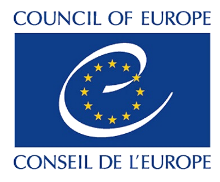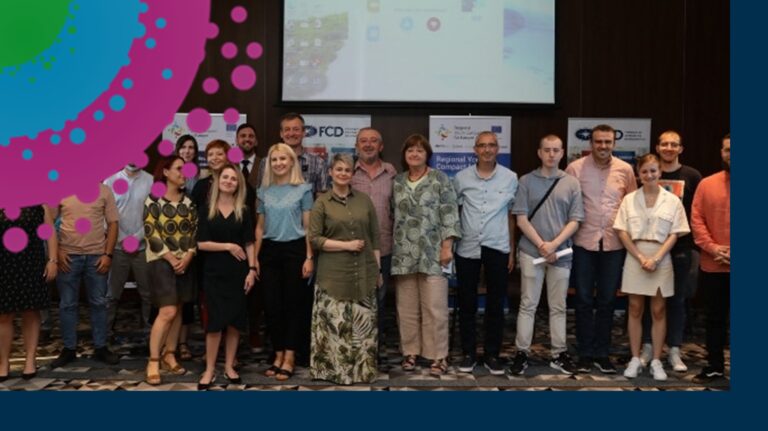Current status
Submitted
Discover more
After a contribution is submitted to BePART Forum, the initiative is marked as “Submitted”; as other partners involved in the initiative submit information from their side, the initiative is marked as “Under review” and goes through the validation process; twice a year, initiatives are validated by the BePART Working Group at the Council of Europe. Successful initiatives are marked as “Validated”. Do you want to learn more – click here
Contributor(s)
First contributor: ALDA – European Association For Local Democracy
Summary
This project is designed to help enhance CSOs participation in policy design and in monitoring the process of EU integration in the Western Balkans and to engage youth to participate more actively in this process. This project addresses main concerns that represent key challenges for West Balkans countries, in particular the issues of rule of law, fundamental rights, and economic and social issues where employment is a priority topic for the citizens. This project is focused on involving young people in the decision-making process and raising awareness about their necessity and importance for society! The main objective of the project is the improvement and development of participatory youth policies and local democracy in communities of Western Balkans, supporting youth initiatives fostering active citizenship and participation of young people at the local level.
Administrative level
Local: 12 partners at the local level in the Balkans and Turkey SODEM, Youth Act Center, CRTA, ALDA Skopje, LDA Prijedor, LDA Zavidovići, LDA Albania, LDA Subotica, LDA Montenegro, LDA Kosovo.
Year of implementation
2019-2021
Policy area(s)
- (Local) Development and Planning
- Youth
Further details
/
Sorry, no records were found. Please adjust your search criteria and try again.
Sorry, unable to load the Maps API.
Local Democracy Agencies in the Balkans and the Democracy centre in Belgrade
Civil society organisation
Contact info
/
Tipology of involvement in the initiative
- Initiating (i.e., advocating for and starting the process)
- Organising
- Funding
- Participating with a direct involvement
- Indirectly impacted by the process
Municipalities where the LDAs are based in the Balkans
Public Authority
Contact info
/
Tipology of involvement in the initiative
- Municipalities where the LDAs are based in the Balkans
Level of Participation
- Information
- Consultation
- Dialogue
- Partnership
Discover more
By level of participation we refer to the type of involvement in the decision-making process. The levels are identified by the intensity of participation: going from “information” to “consultation” to ” dialogue” to “partnership”. Do you want to learn more – click here
Developed practice(s)
The project developed policies at the local level for youth to improve local policies. Youth participants in the elaboration of the programme, were trained together with local authorities and then they produced road maps for long terms engagement. The efforts were put to make sure the young people can remain and develop their cultural and professional aspiration in their communities. The programme also had a regional perspective, including all countries of the region of Western Balkans. they also contributed actively to comment the EU Accession process and recommend new approaches and concrete steps.
Step(s) of the political decision-making process at which the practice was implemented
- Inputs/Incentive ideas for policy
- Agenda Setting of policy
- Drafting of policy
- Monitoring of policy implementation
- Re-formulation of policy
Discover more
There are six different steps of the political decision-making process: agenda setting, drafting of policy, decision-making, implementation of policy, monitoring and reformulation of policy. Each step offer opportunities for CSOs and public authorities to interact. Do you want to learn more – click here
How the initiative was implemented
Situation
The municipalities and the Local Democracy Agencies worked together to develop common youth policies.
Activities performed
Multistakeholder platforms and youth local paths were organised.
Tools and mechanisms applied
Multistakeholder workshop, conferences, information sessions, youth centres, workshop, and visibility actions.
Goals of the civil participation initiative
At community level
To promote multistakeholder’s platforms for better youth participation
From Civil society organisation’s perspective
To be able to set the agenda and influence the agenda of local authorities
From Public Authority’s Perspective
To have better inputs for local policies on youth and new partners in civil society
Results expected prior to the implementation
Develop more inclusive local communities, where young people feel valorised and could invest in their communities. Develop municipalities, often in more remote areas of the Balkans, in social and democratic terms.
Immediate results achieved after implementation
Local authorities’ politicians and civil society have been engaged together in a participatory process. New policies with positive and constructive perspectives were realised with a direct impact on job and social development of the society.
The Balkan network for local democracy was established.
Long-term impact
The network impacted on a long-term perspective by influencing the policy work and the way the municipalities engaged in the project related to youth. The project has also set important recommendations on youth engagement at the regional level for future policies. a new structure has been created within ALDA, the Balkan Network for Local Democracy. Youth will feel more included at the local level, having more reasons to stay and invest in their life in their communities, supporting development and democracy.
Practice lessons learnt (obstacles and solutions)
| Agency (i.e., political conditions/power structures) | Obstacles | Reluctance of municipalities to be engaged in medium and long term |
| Solutions | Very concrete cooperation and plans | |
| Legislative | Obstacles | Difficulty in autonomy and sustainability of local policies (budget wise) |
| Solutions | Identification of local partners to support the initiatives | |
| Administrative | Obstacles | Difficulties in spending and supporting the initiative also with volunteers |
| Solutions | Concrete plans of cooperation, to make simpler the participation | |
| Socio-cultural | Obstacles | Community which includes youth with reluctance and youth more interested in leaving than investing at the local level |
| Solutions | Smart solutions with quality project that can be quickly visible and paying off | |
| Economic | Obstacles | Limited resources, globally, for all stakeholders |
| Solutions | Limited initiatives, strong and assertive fundraising, training | |
| Human capital | Obstacles | Limited resources in terms of capacities both in local authorities and civil society |
| Solutions | Training for both and empowerment | |
| Other | Obstacles | Regional approach not supported by some political levels |
| Solutions | Assertive organisation of regional activities (despite the circumstances) |
Further information
/
Self-assessment
The self-assessment presents the opinion of the contributor about on what extent the following principles for Civil Participation have been reflected in the implementation of the initiative/practice/case-study, ranging from 1 (min) to 4 (max) (N/A: not applicable, do not know)
| Openness | 3 |
| Explanation | |
| Trust | 2 |
| Explanation | |
| Independence | 3 |
| Explanation | |
| Participation | 3 |
| Explanation | |
| Transparency | 3 |
| Explanation | |
| Accessibility | 3 |
| Explanation | |
| Non-discrimination | 3 |
| Explanation | |
| Inclusiveness | 3 |
| Explanation | |
| Accountability | 3 |
| Explanation |
Thank you for wanting to share your experience on the BePART platform!
Learn more about the submission process, or just fill the form below.



